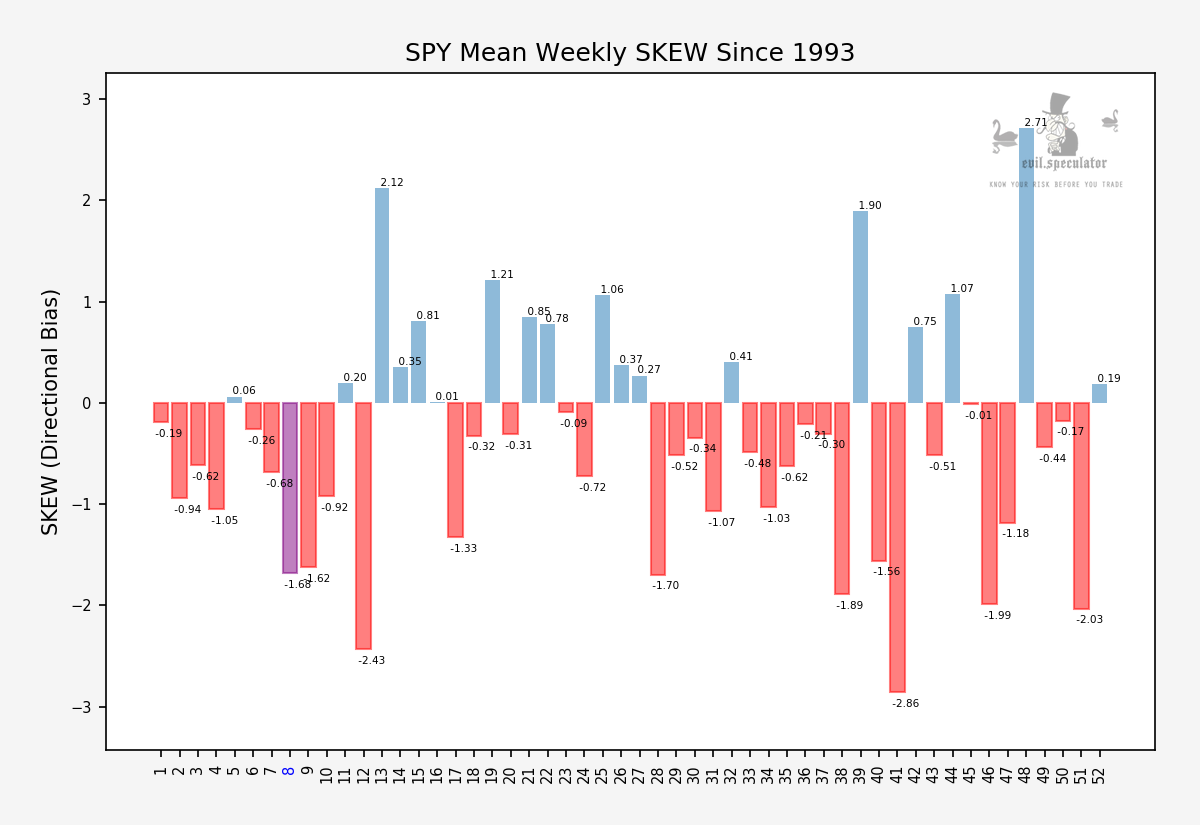Mind Hacking
Mind Hacking
It’s Opex Friday and instead of posting our usual line up of symbols I decided to explore some of the ruminations which followed an epiphany I experienced earlier this morning. Just like many of you one I have slowly developed an now ingrained habit of reaching for my tablet right after waking up. My rational justification is that of an online entrepreneur and professional trader who needs to remain connected, and if nothing else wants to assure that nothing urgent has come up which may require my attention. The truth of the matter however is more along the lines of me enjoying a few more lazy minutes reading in my cozy bed, especially when it’s cold outside.
Now on my actual MacBook Pro I have gone to great lengths to prevent advertisers, spammers, hackers and the sorts from getting through my digital gate. We are talking ad blockers, anti-tracking plug-ins, Flash blockers, black lists, you name it – all of which designed to aid an ongoing arms-race of avoiding useless crap I don’t want to waste my time on. My tablet however is a bit more limited in that respect and thus the following twitter reply managed to slip through this morning:
First up let me apologize to my male readers for the liberal use of pixelation in order to protect some of the more fragile minds amongst you. We over here in Europe are less affected by nudity but it’s the Interwebs and all and I really don’t feel like answering angry emails today. Now I’ll come right out and admit that I enjoy the view on nice set of mammalian glands as much as the next guy. But I had just woken up and quite honestly I found it a bit annoying. Which upon further reflection surprised me little at first.
Some of you well meaning readers may think that I may ‘have grown up’ but let me assure you that nothing could be further from the truth. The mental wiring in place to stimulate sexual urges goes deep, leading right past the hypothalamus, directly affecting hypophysis and the limbic system. As such sexual triggers accompany men way longer in life than they actually may care for. Of course the more malicious amongst you may just say that I’m getting old and heck, that may be true – however I doubt that I ever get ‘that old’ if you get my drift, so let’s just leave it at that. ¡Callate mugabe!
Be this as it may – as you know much of my time in recent years has been spent analyzing the art of manipulation and deception. If you think that trading is a purely technical endeavor then think again. Being good technically just gets you through the door – the key to long term success as a market participant lies in suppressing a laundry list of cognitive biases that institutional traders have become masters in exploiting. And not surprisingly I have devoted quite a bit of time covering this topic over the past few years. As the old saying goes – there’s a sucker born every minute. Hence a significant portion of the financial industry has always revolved around luring hapless retail victims into the big meat grinder. That’s right – you are not alone.
Information Diet
Knowing the statistics (i.e. over 90% of retail traders fail) I have over the years adopted an instinctive habit of questioning every single piece of information that I come across. A few years ago I wrote a post about how to abide by a strict information diet which you may find interesting. It outlines a pretty practical approach to avoiding information overload and how to primarily limit your attention to useful data that aids your personal and professional goals instead of hijacking them. However it is the latter, the hijacking of people’s attention, that is today’s topic and as it is extensive we will have to split it into several parts.
The Genesis Of Spam
In order to understand the reason for my almost instinctive dismissal of Ms. Masterchef let’s go through the process and motivations involved that preceded its delivery. Amongst the daily barrage of information (wanted or not) it’s easy to lose sight of the fact that there are actually people out there who do this for a (rather profitable) living. And let me assure you – they have this down to a science:
- The carrot: Create an attention grabbing message or image. A whole chapter can be devoted to this but in general what is known to work well and repeatedly are sexual triggers, small children, cute animals, violence, shocking imagery, etc. – all of which press emotional buttons and stimulate arousal, empathy, or curiosity.
- Deliver the carrot to a vast but targeted audience via advertising, spamming, viruses, etc. A growing Billion Dollar industry exists now to expedite that very purpose.
- The hook: Upon delivery exploit momentary attention to produce a click through.
- Monetize the hook via a vast range of approaches. We won’t cover those but they roughly group into sales of products, subscriptions, or services as well as promotions, advertising, lead collection, etc. In more recent history they also serve as a means of personal profiling as well as manufacturing of consent, and we’ll cover these subjects later.
Sounds a lot like fishing, doesn’t it? And clearly quite a bit of work and thought has gone into introducing Ms. Masterchef to yours truly. And clearly it’s not being done for fun either. While the underlying motivations may be as old as humanity itself (e.g. to sell, deceive, manipulate, track, etc) the means of delivery are becoming increasingly sophisticated while the level of access into our respective sphere of privacy is unparalleled. Don Draper would have sacrificed a limb to such unmitigated means of dissemination.
What appears to be happening on a large scale basis is a concerted effort to manipulate, to trigger emotional responses in an Pavlovian manner. And a large aspect that accompanies this effort is that of digital profiling which happens every time you search something on Google, click on a particular news item, ad banner, or promotion, participate in social media such as twitter, Facebook, listen to music on Pandora or Spotify, etc. The list is long and it’s growing by the day as more and more of our time is spent in the virtual world.
Hacking The Human Mind
In information technology the art of gaining unauthorized access to a system or network is called ‘hacking’ and sometimes ‘cracking’ with the latter describing intrusions with malicious intent involving sophisticated exploits.
Cracker – This is the common term used to describe a malicious hacker. Crackers get into all kinds of mischief, including breaking or “cracking” copy protection on software programs, breaking into systems and causing harm, changing data, or stealing. Hackers regard crackers as a less educated group of individuals that cannot truly create their own work, and simply steal other people’s work to cause mischief, or for personal gain.
Hacker – This is someone that seeks to understand computer, phone or other systems strictly for the satisfaction of having that knowledge. Hackers wonder how things work, and have an incredible curiosity. Hackers will sometimes do questionable legal things, such as breaking into systems, but they generally will not cause harm once they break in. Contrast a hacker to the term cracker.
What both share in common is the underlying purpose – to gain access to systems without permission according to their respective motivation. The hacker may do it out of sheer fun or curiosity, the cracker does it for personal gain or to affect political change, deface, to embarrass, blackmail, again, the list is long. Although people on the inside draw clear distinction between the activities involved are colloquially referred to as hacking.
There is even an aspect of ‘hacking’ that doesn’t involve any computers. Let’s say I may want to get access to a particular person’s private phone number. I may call his/her secretary and claim to be an IRS or FBI agent who needs to talk to that person about an urgent matter. I bet you good money that, if only halfway convincing, in at least half the cases I will be given that number (no I haven’t done this in case you wonder). And that right there would be called ‘social hacking’ – Wikipedia has a good write up on this in case you’re curious.
So clearly this is not a new concept but it seems that the emergence of the Internet has become the impetus for a whole new generation of social hackers if you will. Given the exponential reach and means of message delivery social hacking and mass manipulation is being perfected to a whole new level. Which brings me to a Japanese manga series – quite a segue but hang with me as it’ll all make sense in a minute.
Ghost In The Shell
The series originally emerged in 1991 and describes a possible future where computer technology has advanced to the point that members of the public are equipped with cyberbrains and related technology that allows them to interface their biological brain with various networks. The level of cyberization varies from simple minimal interfaces to almost complete replacement of the brain with cybernetic parts, in cases of severe trauma. This can also be combined with various levels of prostheses, with a fully prosthetic body enabling a person to become a cyborg. The main character of Ghost in the Shell, Major Motoko Kusanagi, is such a cyborg, having had a terrible accident befall her as a child that ultimately required that she use a full-body prosthesis to house her cyberbrain. This high level of cyberization, however, opens the brain up to attacks from highly skilled hackers, with the most dangerous being those who will hack a person to bend to their whims.
Now in comparison with such a dystopian future the twitter spam I received this morning is rather harmless. Or is it? Think about it – already today our minds are constantly being bombarded with messages and information we did not request and that we often actively avoid. We have taught ourselves to ignore most of them but the few that slip through do often accomplish their purpose. And in most cases that involves separating us from our hard earned cash, to give up some of our personal privacy, or to draw us into various political or social justice causes. The onslaught is constant and it is becoming increasingly difficult to escape. Although we all like to think that we are able to resist we are all victims of manipulation to various degrees. Some of us are more vulnerable than others but I am not going to claim that 20 years of Internet access has not fundamentally changed the way I perceive the world around me.
A Recent Example
Just a few days ago on July 14th Twitter’s stock jumped around 8 percent and then closed up 2.6 percent on the day even though the report that triggered the price jump was quickly revealed as a sham. Effectively what happened here was that a large number of market participants had been mentally hacked into buying Twitter. Although I admire the execution and nefarious intent events like these give me the shivers. Because we are only at the cusp of a technological revolution and over the coming decades I expect closer and closer integration of the human mind into the digital matrix. Right now the extent of our capabilities is limited to handheld devices, digital watches, and sensors integrated into clothing. Most recently Google attempted but eventually failed to gain traction with its Google Glass project. But where Google missed the mark Apple and its many competitors may be able to slip by our personal guards and gradually equip us with increasingly intrusive gadgets designed to integrate with its users.
The Future Is Now
For instance – already today the 1.0 version of the Apple watch is able to monitor your heart rate via photoplethysmography. And I expect even more sophisticated sensors to be added over time – all of which will greatly aid in monitoring our bodily and perhaps mental functions. But where does it stop? How will I prevent for instance a website or twitter message from monitoring my heart beat while I’m reading an article, look at a twitter message, or perhaps evem while I’m trading? Wouldn’t it be really tempting to for example identify people of a particular group and then track not only their online activities but also collect data on how their respond emotionally to certain stimuli or events? I frankly would be very surprised if nobody had thought of this yet and I have an inkling that deep inside some corporate lab efforts are underway to exploit capabilities just like that.
Now going back to the silly Twitter message featuring Ms. Masterchef earlier this morning. I wonder how many people besides me received this message and wound up ‘following the conversation’. I was able to resist the temptation (no jokes please) but in the future my emotional response may be tracked that very instance and then added to my personal profile online. And even that may appear to be clumsy if we one day manage to interface directly with computers.
It’s already started with eye tracking, motion tracking, face detection, thumbprint reading, and now various body sensors. But where will it all end? And how will it affect the world around us, including the financial markets? Could an emotional mass response to a planted news item one day actually lead to a stock crash? Or to a lesser extent – will faceless entities hiding behind cyber walls manage to succeed in manipulating markets via exploitation of integrated personal gadgets? The possibilities are vast, only exceeded by the profits that could be gained. And what would be the legal implications on financial regulation and oversight? Will we perhaps live to see a investigative cyber unit not unlike it was portrayed in a Japanese manga in the early 1990s? Not questions I ever imagined pondering in my lifetime.

The future is now – so don’t bring a knife to a raygun fight. If you are interested in becoming a Zero subscriber then don’t waste time and sign up here. A Zero subscription comes with full access to all Gold posts, so you actually get double the bang for your buck.
Cheers,

















